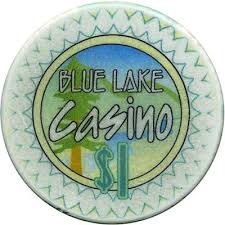| Blue Lake Rancheria Thread |
Blue Lake Rancheria
"Before Euro-American settlement, Tribes had no concept of land ownership per se. Territorial boundaries, yes, but these were in constant flux."
-Mandi Lewis, Blue Lake Rancheria Tribal Historian
Blue Lake Rancheria
Today, the Blue Lake Rancheria consists of approximately 91 acres near the City of Blue Lake, California, 17 miles north of Eureka and 5 miles east of Arcata, in Humboldt County.
The Blue Lake Rancheria is located within the traditional territory of the Wiyot people. The Wiyot, traditionally lived along the Eel and Mad Rivers in Northern California, ranging from there into neighboring forests and prairies. During the 1850s, the Wiyot were forced out of their traditional territory and killed in large numbers by Euro-American settlers.
In 1908, the Blue Lake Rancheria was established within the aboriginal boundaries of the Wiyot under the Rancheria Act as a refuge for homeless Indians. Here the members of the Tribe resided until August 18, 1958, when the original Rancheria was unlawfully terminated pursuant to P.L. 85-671.
In 1983, after a 25 year fight for re-establishment, and as a result of the Tillie Hardwick v. United States decision, the Rancheria secured title to a portion of its former trust land. This property obtained federal trust status on December 15, 1983. Two parcels of the original Rancheria footprint were deeded to the City of Blue Lake by the U.S. Bureau of Indian Affairs and have not been reacquired.
Archeological Sites
The Blue Lake Rancheria is committed to protecting remaining Native American archeological and cultural resources from destruction, and strengthening the legal and ethical framework associated with site preservation.
Where Native American archeological sites are discovered and should be returned to the care of Tribes, a fair and equitable transaction should occur. Tribes are willing to work with all parties to determine rightful custodianship of artifacts and burial grounds, but they also refuse to be extorted by those seeking to profit from the exchange of ancestral remains.
~http://www.bluelakerancheria-nsn.gov/ ~
Artist/Author: -Mandi Lewis, Tribal Historian October 7, 2016 | |
|
|
